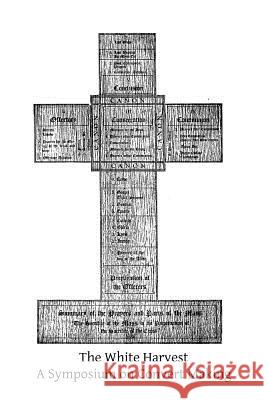The White Harvest: A Symposium on Convert Making » książka
The White Harvest: A Symposium on Convert Making
ISBN-13: 9781502867131 / Angielski / Miękka / 2014 / 374 str.
I have here the task of introducing several writers all treating one subject, but each in his own way and that way not the way of the others. I could truthfully say that the occasion affords me much pleasure, but I say more than that, for it affords me so much pleasure that I hesitate to use the trite old sentence without a warning to the reader that I mean it. Why this pleasure? It might arise out of my knowledge of the merits of the writers, but it does not. It might well arise out of my knowledge of the usual excellence of their writings, but it does not. My pleasure comes out of this, that zealous and learned men at last are turning to a study of how we best can solve a problem for our day and age that is the most important problem of the Church in America and in the rest of the world. Not that others did not solve it in other days. The Apostles did. Francis Xavier did. Brebeuf and Jogues did. De Smet did. It is a problem, however, very unlike one of mathematics in that it changes with the changing world. The answer does not change. The basic methods of working it out do not change, but the pupils do change. They change greatly as the generations pass. Active, respectful, judicial, reasonable, they may have been at times, but in a few years they become the opposite. Human nature is like that. Today they are a greater problem than ever before, because many of them have lost touch with the foundation of the eternal principles, while other have stuffed their ears with the impenetrable wool of inherited prejudices. The task is the same. The work to be done is the same. But what might be called "the difficulties of the job" are new. Alas, there is something else that is new and that is the appearance of the teachers in the strange' places they are called upon to visit. Hitherto they taught, but in familiar surroundings, to familiar and friendly listeners and from a familiar rostrum. These teachers were so few and the listeners so many that little thought could be given to the crowd that wandered around outside or timidly hung about the edges. There was enough to do to take care of those who had, without giving much more than a passing thought to those who had not. But that situation could not last. It was not Apostolic and, what is more to the point, it was not what Christ commanded. He had thought of all. He wanted all. His Gospel was for all. He built his church for all. His ministers, like His truth, belonged to all. We knew that, even when we could not put our knowledge to work outside our own flocks. We are now beginning to worry about the fact that we knew it. Thank God for the worry. This book is a symposium of a new uneasiness and anxiety uneasiness about ourselves and anxiety about others. It is not however a symposium to give us trouble but to give us consolation. When we worried only about what we had, we were doing only half the worrying Our Lord wanted us to do. So it really gives me pleasure to present these gentlemen and ask that they be given a hearing. They are not going to say the last word on the subject of "How to Convert," but they are going to say a useful word, a needed word, a consoling word and a word that many have waited long to hear.
Zawartość książki może nie spełniać oczekiwań – reklamacje nie obejmują treści, która mogła nie być redakcyjnie ani merytorycznie opracowana.











